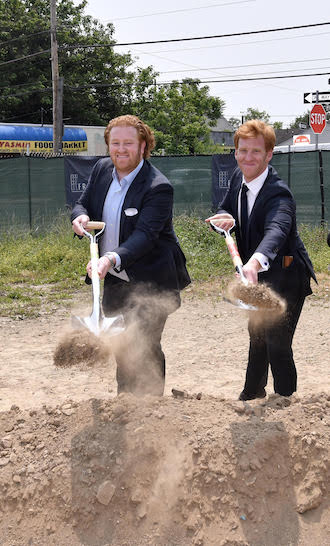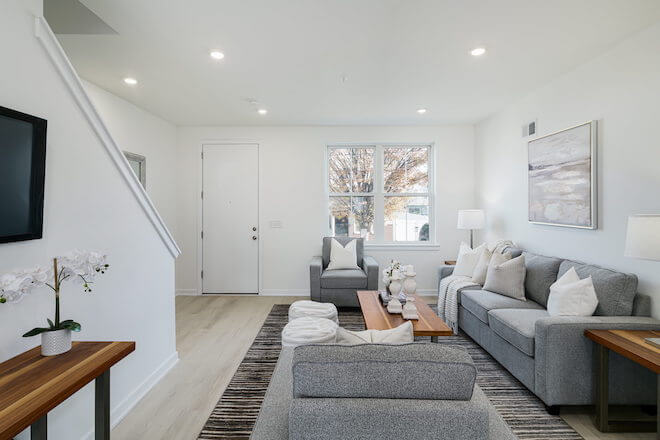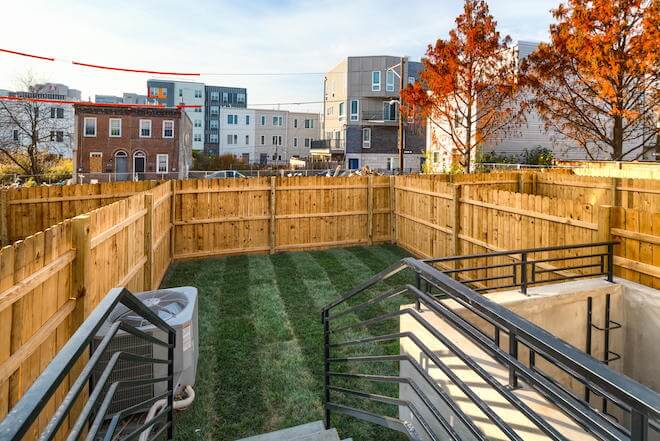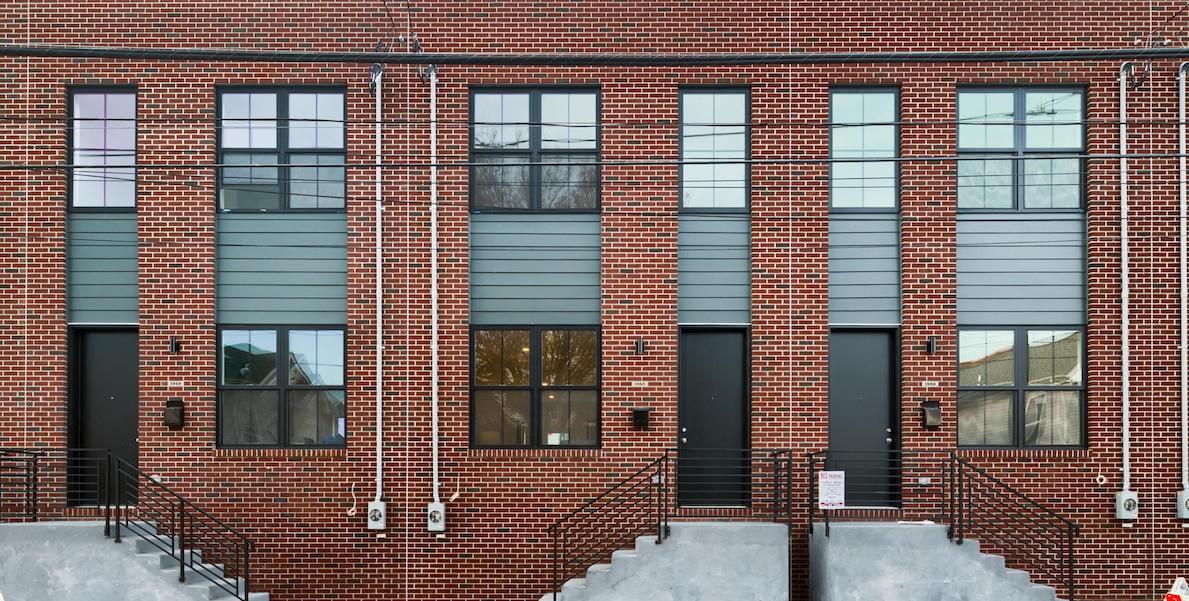Growing up in Germantown, Alexis Smith-Williams heard a constant refrain from her mother and grandmothers: Buy your own house. “That was something they always talked to me about, Alexis, buy yourself a house,” Smith-Williams recalls. “Since the time I was grown, it was always, Buy yourself a house.”
Their advice was sage. In 2020, when Smith-Williams began her home search, the average U.S. homeowner had a net worth of $255,000, according to the Federal Reserve’s Survey of Consumer Finances. Renters had an average net worth of only $6,300. In other words, homeowners are literally 40 times wealthier.
But for Smith-Williams, who’d rented for decades, the process of buying a house for herself and her adult daughter was anything but smooth. There was a lot of paperwork involved in applying for a mortgage, and she needed to build up her credit score. Even if she got through all of that, she knew she might not be able to find a nice, turnkey home in her budget. “They just wanted too much from me,” Smith-Williams says.
In a city with a 21.7 percent poverty rate, rising gentrification and a massive housing crisis, they’re helping working families stay in their neighborhoods and build wealth in the process.
She was thinking about giving up when a woman at the North Central Community Center gave her a business card for Philly Workforce Homes. The local company designs and builds homes specifically for Philadelphians who earn between 60 and 120 percent of the area median income — and helps them through the entire process. Smith-Williams applied through their website, and, in May 2022, closed on her new home in Philly Workforce Homes Diamond Village development near Temple University.
Since its launch, Philly Workforce Homes has built 53 homes across two different development projects, one in West Poplar and one in Diamond Village. They’re currently constructing 73 more units and have another 120 in the pipeline. Next month, they plan to open applications for homebuyers to purchase another set of their homes. In a city with a 21.7 percent poverty rate, rising gentrification and a massive housing crisis, they’re helping working families stay in their neighborhoods and build wealth in the process.
A passion for affordable housing
Max and Zachary Frankel launched Philly Workforce Homes in 2017 as a branch of their family’s four-generation development company, Frankel Enterprises. The brothers come from somewhat of a real estate dynasty: Their great-grandfather launched the company in Philadelphia the 1930s. It has since expanded to Ohio, South Florida and around the tri-state area.
All this to say, the Frankels grew up knowing they’d go into real estate. Zachary earned a masters in real estate development from Columbia University and spent years working on affordable housing projects in New York City. Max, too, worked in affordable housing, financing projects in New York before moving onto luxury development for the family’s Florida offices.

By all accounts, the two were forging successful careers as developers. Yet, they both missed Philly. They were born and raised in Center City. They grew up rooting for the Eagles. Once, on a visit home, Zachary ordered a PBR from Silk City and when the bartender charged him just $3, he said to his wife, “I have to move back to Philadelphia.”
And the siblings thought they could do good in the city, too. They had been looking at area median incomes (AMI) for a one-, three-, five- and ten-mile radius from Center City and saw a huge gap between Philly and wealthier suburbs like the Main Line and Cherry Hill. In 2021, Cherry Hill’s AMI was $107,341. Philly’s was $52,649. In order to afford a median-priced home in the city — $275,000 — you’d have to earn at least $75,000.
But in Philly and nationwide, more and more homes are being listed in the top of the market, pushing that median price higher. The National Association of Realtors found that less than a quarter of sellers nationwide priced their homes for less than $256,000. Even if more Philadelphians could afford a $275,000 home, there might not be enough for sale. Why couldn’t the Frankels use their experience working in affordable housing in New York City to build some more median-priced homes in Philly?
“If we aren’t going to help to fix some of the housing prices here in Philadelphia, who’s going to?” Max says. “We obviously enjoy real estate development as a profession and know that we can both do good and make a living.”
So in 2017, when the Land Bank put out a request for proposals for a plot of vacant land in West Poplar, the brothers saw their opportunity.
Turning vacant land into homes for everyday Philadelphians
By the end of 2019, Zachary and Max had built 23 $229,000 homes on the plot in West Poplar. How they did — and do — it, they say, is simple. The Frankels respond to RFPs for vacant land put out by city agencies, like the Land Bank and the Philadelphia Housing Authority. Once a project is approved, they work with banks, like Mid Penn, or investors, like the Reinvestment Fund, on financing. Next, they build, sell them for a small profit, and watch a neighborhood thrive.
“Anytime that you can give a working Philadelphian a property that they can call their own, that they can take care of that’s not a rental property, there seems to be a lot more care and love and ownership that’s taken, especially in a new construction home,” Max says. “A lot of the people that we have sold homes to never thought that they would be able to afford a home in their life. This is a dream that they thought was unfeasible based off of a ton of different economic factors.”
For their latest projects, the Frankels are working with the Philadelphia Housing Authority on two different communities in Sharswood: Girard Commons and Bucknell Square. Bucknell Square is made up of single-family, three-bedrooms with backyards, roof decks and parking. Girard Commons is a mix of single-family homes and condos. Prices start at $250,000 and go up to $300,000. The homes will be available starting next month.

To apply, prospective homeowners must work with a lender to get pre-approval for a mortgage (Philly Workforce Homes can recommend a lender if need be). Buyers then submit proof of income and employment and complete a brief online application. Approved buyers are connected with a credit counselor who helps them through the homebuying process. Philly Workforce Homes also helps direct buyers to city grants and subsidies that can help first-time homebuyers, including the Turn the Key initiative, which offers up to $75,000 in assistance.
“Conceivably, you could apply Turn the Key funds to a $250,000 unit and automatically bring it down to $175,000. It’s really exciting,” Zachary says.“We’ve seen it change the lives of many, many Philadelphians.”
Philly Workforce connected Smith-Williams with the credit counselor who helped her commit to the process of buying a home: “She stuck with me and she stayed with me. She helped me every step of the way and I really appreciated her for that,” Smith-Williams says.
Workforce housing for every Philadelphian
The Frankels aren’t the only developers working with city agencies to build affordable and workforce housing on vacant lots. Mohamed “Mo” Rushdy of the Riverwards Group, chairs the board of directors for the Philadelphia Accelerator Fund, which plans to finance the development of 6,000 affordable housing units over the next few years.
But the Frankels are committed to leading the way, both with Philly Workforce Homes and as chairs of the Building Industry Association of Philadelphia’s affordable housing committee. Zachary hopes to one day extend Philly Workforce Homes’ business into building reasonably priced rentals and eventually to expand the model beyond Philadelphia.

Zachary refers to the work he’s doing as “a societal imperative.” “As Philadelphia grows into the city that we know that it can be, it is absolutely essential that we provide housing for people of all income levels, not just new housing for the top of the market,” he says.
The Frankels declined to share revenue figures for Philly Workforce Homes. But they did note that, as with any workforce housing project, profits are small. They’re not in this work for the money. They do well enough through their market-rate developments at Frankel Enterprises. Philly Workforce Homes is meant to make the city a better place to live, for more people.
The mission comes back to their Jewish faith and the concept of tikkun olam, the idea that the world is shattered and people need to take action to heal it. The brothers remember working with one woman who had grown up renting in the Norris Homes housing project, which the Philadelphia Housing Authority demolished in 2018. Philly Workforce Homes were one of several developers to build new housing there — and sold one to the former renter..
“Now she’s a homeowner back in her neighborhood with her family in a beautiful new home. That is the dream scenario for us,” Zachary says.
“It’s our obligation as human beings to repair. It’s ingrained in who we are and when we can use our talents … in order to accomplish that mission, that’s what we are obligated to do.”
![]() MORE HOUSING SOLUTIONS FROM THE CITIZEN
MORE HOUSING SOLUTIONS FROM THE CITIZEN



